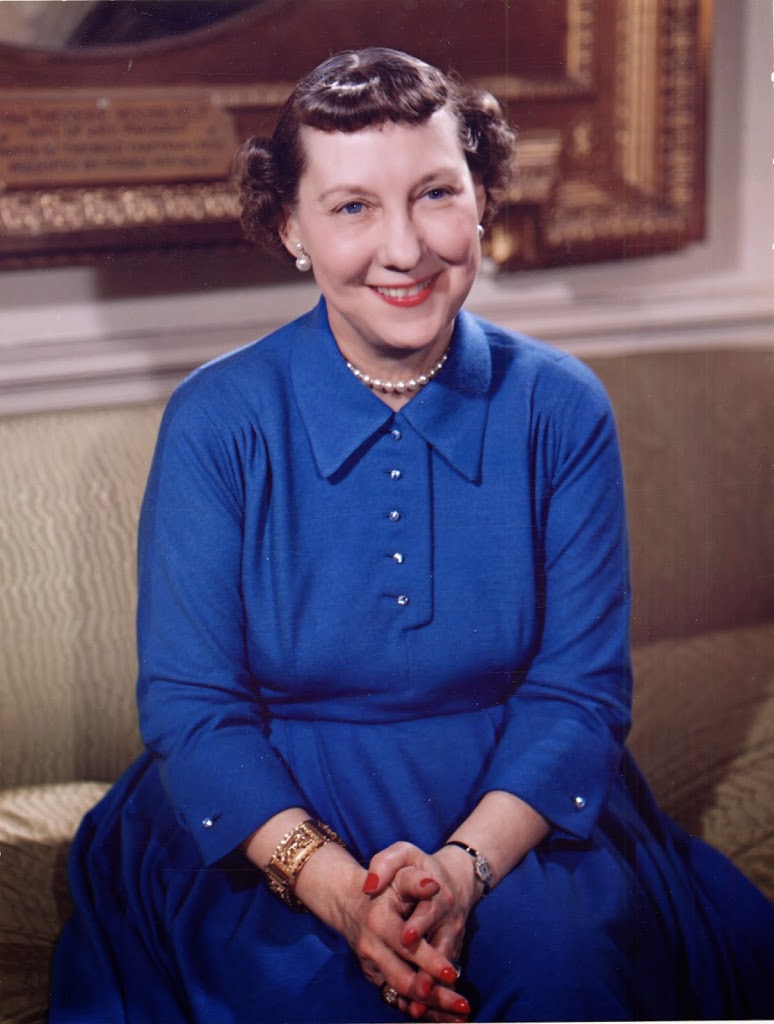After an almost fatal heart attack and stroke during his presidency, Dwight Eisenhower was not in the best of health as his two terms came to a close in 1960. Ike’s wife, Mamie, was justifiably concerned about the President’s health.
Oldest man in the White House: In addition, he was more than 70 years old and was the oldest man to occupy the White House until then, having broken the previous record set 100 years earlier with James Buchanan who left the presidency and the nation in shambles two months shy of his 70th birthday.
 |
| Mamie Eisenhower |
Mamie muzzles the President: Thus, as the 1960 campaign to elect Ike’s successor geared up, Mamie took an action that may have made the critical difference that put Democratic candidate John F. Kennedy in the White House instead of Eisenhower’s own vice-president, Richard Nixon. She made it known to Nixon’s wife, Pat, early in 1960 that she wanted to limit the President’s exertion during the campaign. Vice-President Nixon went along with not showcasing Eisenhower in the election for the sake of the President’s health. But Ike didn’t know about his wife’s intervention, nor why Nixon was not using him more in the campaign. When Eisenhower finally appeared on the campaign trail with Nixon in mid-October, the polls began to tighten and Nixon slowly closed the gap with Kennedy. Had Nixon used Eisenhower more and earlier in the campaign, the popularity of the President could have very well made the difference and resulted in a Nixon presidency come January 20, 1961.
Why JFK won: In addition to Mamie’s intervention limiting the President’s campaigning for Nixon, there were a variety of other factors that contributed to Kennedy’s razor-thin electoral victory of just 118,574 votes nationwide, all of which raise fascinating “what if” questions:
- Campaign strategy: Kennedy campaigned more strategically than Nixon and focused on key states with large electoral vote tallies, while Nixon fulfilled his vow to campaign in all 50 states, diluting his focus, and depleting his energy.
- Debates: Many political observers note that Nixon’s decision to debate Kennedy gave the young JFK added stature on the national stage, boosting the confidence of voters that he could handle the presidency. To top it off, Nixon simply didn’t look well in the debates, compared to Kennedy’s handsome and youthful face and his confident charisma. Even Nixon’s mother, after the debates, phoned a Nixon assistant to ask her if he was “feeling all right.”
- Electoral fraud: After the November 8, 1960 election, as returns poured in from across the country, there were serious doubts about whether ballot boxes in Chicago and Texas had been stuffed in Kennedy’s favor. In one Texas county, more votes were cast than there were registered voters. In Chicago, “there was a cemetery where the names on the tombstones were registered and voted,” noted Earl Mazo, a New York Herald Tribune reporter. If Illinois and Texas went for Nixon, he would have been elected instead of JFK.
- Nixon’s relationship with Eisenhower: Although Nixon had served as Eisenhower’s vice-president for eight years, their relationship was never a warm one, and Ike always viewed Nixon somewhat warily, going back to the charges of Nixon’s questionable finances that culminated in his famous “Checkers” speech, after which Americans overwhelmingly urged Ike to keep Nixon on the ticket. At an August 24, 1960 press conference, President Eisenhower, in response to a question asking for an example of a major idea of Nixon’s that Eisenhower had adopted, replied “If you give me a week, I might think of one. I don’t remember.” It certainly wasn’t a ringing endorsement of his vice president to succeed him in the White House, and the President’s comment definitely hurt Nixon.
Mike Purdy’s Presidential History Blog
© 2014 by Michael E. Purdy
www.PresidentialHistory.com

 Facebook
Facebook
 Twitter
Twitter
 LinkedIn
LinkedIn
 YouTube
YouTube
 Pinterest
Pinterest